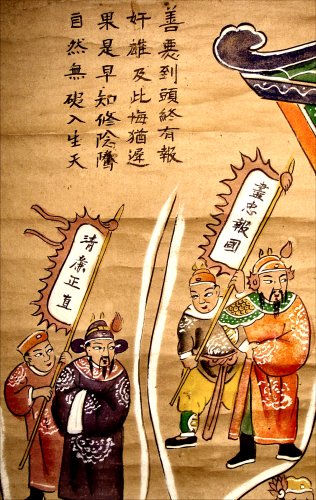
Translations
In the end, good and evil will have its recompense,
And when villains arrive here, any regrets they have will be too late.
If one clearly understood this early on and cultivated secret accomplishments,
Then naturally there would be no hindrance to rebirth in [the Western] heaven.
Left Banner: Pure and incorrupt, upright and true
Right Banner: Requite the state to the limits of loyalty
(Yue Fei's mother was said to have tatooed this last phrase on Yue Fei's back [see below].)
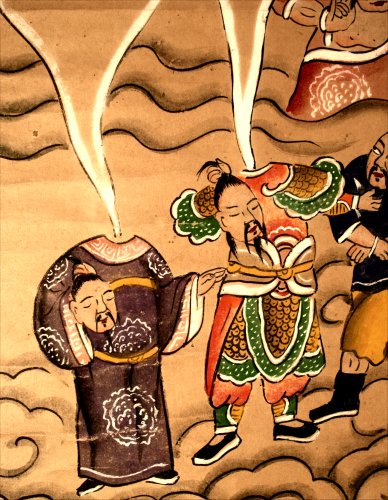
Hell scrolls sometimes draw upon historical figures who exemplify the theme of proper posthumous retribution. In some, a treacherous Southern Song prime minister by the name of Qin Gui - treacherous because he had appeased the Jin Dynasty that had taken over the northern half of China -- is pictured as condemned to torture, forever to be reborn as a dog, even though during his own lifetime he had been honored and praised. Here the orange-robed figure in the upper left is Yue Fei, a general who had loyally fought against that Jin Dynasty only to be imprisoned and executed by Qin Gui. Within a generation or two, Yue Fei became posthumously rehabilitated, and he grew into a mythic figure personifying devotion to the state. Thus Qin Gui and Yue Fei both experienced reversals in their posthumous fortunes, exemplifying the idea of karmic retribution. The dark-robed figure beside him may be Guan Yu of the Three Kingdoms period or (less likely) Zheng Chenggong (a.k.a. Koxinga) from the Ming, both being loyalists likewise fighting for lost causes and who were often grouped with Yue Fei in the public memory. As a third option, the Vidor collection (p. 72) refers to a scroll in which Yue Fei is depicted with his son.
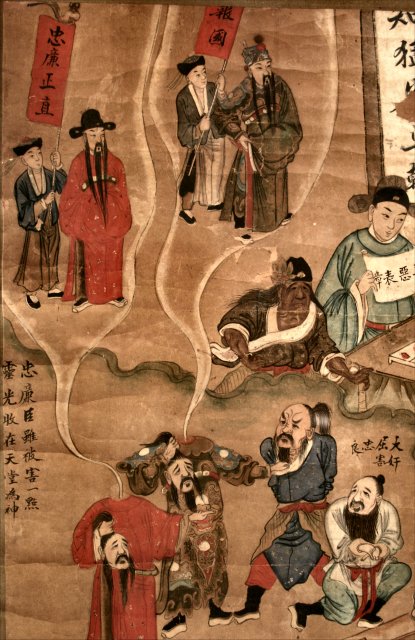
A second example of Yue Fei (in brown) from a damaged hell scroll (S9).
According to Wolfram Eberhard's Guilt and sin in traditional China: "A fourteenth century text already has a special section in the system of hells, the lowest of all, in which we find traitors. Here, the "classical" traitor is Ch'in K'ui, the Sung minister who caused the death of Yo Fei, the patriotic general -- this traitor is still proverbial today and is mentioned in our modern texts. The nineteenth century Yung-wan pi-chi emphasizes this nationalistic aspect, and discusses a number of hells in which different categories of political traitors or criminals are punish."
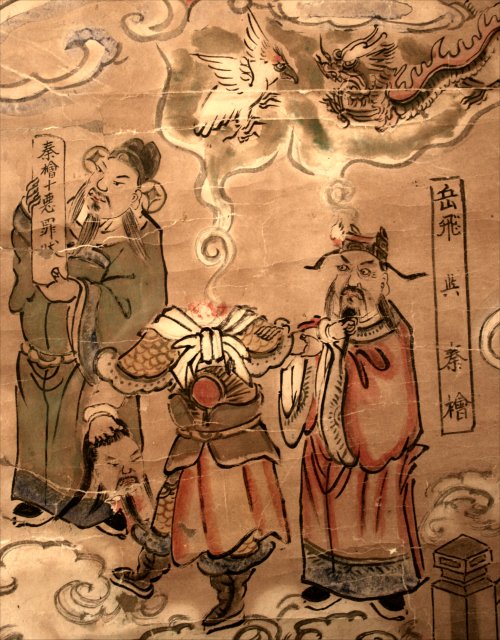
A third example of Yue Fei from another hell scroll (C4).
Here the headless Yue Fei is directly accusing Qin Gui.
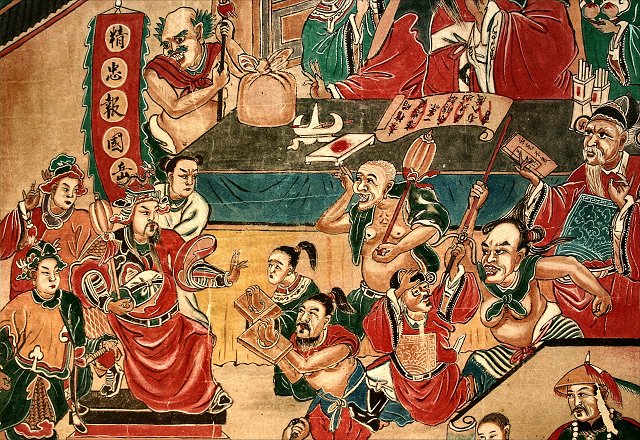
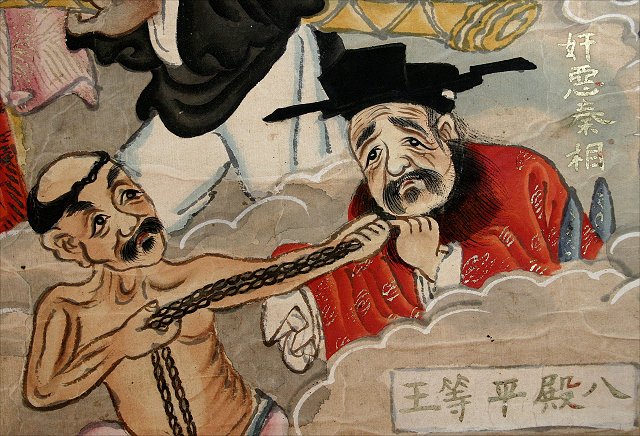
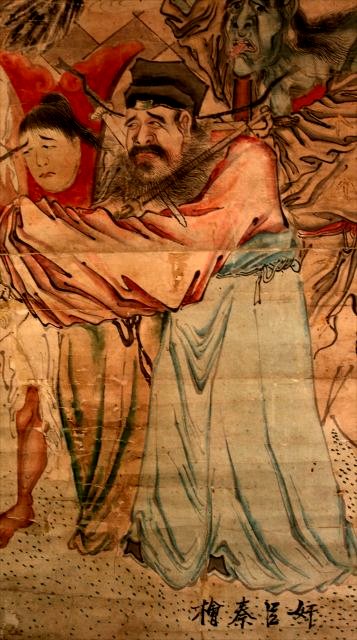
Another example of the condemned Qin Gui from another hell scroll (S17).